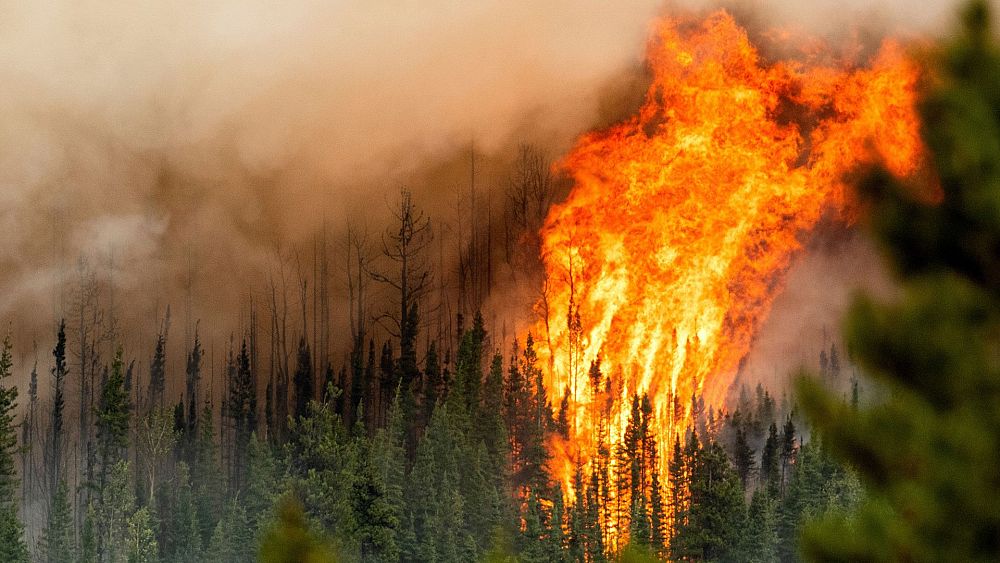
Lightning storms have set off a series of new wildfires in Canada as the country continues to experience its worst ever season.
Earlier this year, fires put Alberta into a state of emergency, and travellers were cautioned about visiting the country. Smoke from the fires reached as far as Europe in an unprecedented burn the likes of which haven’t been seen in 34 years.
This week, a series of lightning storms in British Columbia triggered over 100 new fires, bringing the country’s total to 3,412 this year, with 339 burning out of control.
The fires in Canada are “out of control”
British Columbia’s Wildfire Service said almost 200 of the fires were ranked as ‘out of control’, while officials warned of challenging conditions. Lightning storms are forecast for most of the week along with above-average temperatures throughout the central interior of the province.
Campfires have been now banned in much of the province. During the announcement, Bowinin Ma, British Columbia’s minister of emergency management, said BC expected “continued extreme fire behaviour” after 115 fires were sparked by lightning over the weekend.
This year’s fires have “broken records”
Last week, the Canadian Forest Service said these wildfires had already broken records for total areas burned, the number of people forced to evacuate their homes and the cost of fighting the blazes.
Environment Canada said a high of 33 degrees Celsius in Fort Nelson broke a 64-year-old record there on Sunday.
So far this year there have been 3,412 fires, well above the 10-year average of 2,751. The fires have burned 8.8 million hectares (27.7 million acres) – a size equivalent to Serbia, exceeding the record of 7.6 million hectares (18.7 million acres) set in 1989.
Wildfires come with serious health concerns
Officials have also been cautioning residents on the significant health risks of wildfire smoke, which has been blanketing major US cities as well as Canada’s urban areas.
Marie-Eve Héroux, manager of air quality assessment for Health Canada, explained, “It’s really the fine particles, the ones that are very small and not visible to the human eye that get deep into our lungs and bloodstream – those are the ones we’re most concerned with in terms of health risk.”
The gases in wildfire smoke can cause chest pain, shortness of breath and coughing, and are particularly dangerous for people with heart disease, chronic obstructive pulmonary disease or asthma.
Such smoke is responsible for making Toronto’s air some of the worst in the world in recent weeks.
Wildfires have significant cost impacts
While loss of life is the most significant concern in managing these natural disasters, there are hefty financial costs too.
An American Economics Association report earlier this year noted that fire suppression costs in the US were considerable, citing that between 1995 and 2016 output for 11 states was estimated at more than $13 billion USD (approximately 12 billion euros).
Across the US, the five-year average for federal suppression costs totals over $2.8 billion USD annually (approximately 2.5 billion euros).
Michael Norton, director general of the Northern Forestry Centre, Canadian Forest Service said that while fire suppression efforts typically cost one billion Canadian dollars (approximately 686 billion euros) annually, this year will probably set a new record.
“The total cost of wildfires to the economy and society is a much bigger question,” he said.
Indeed, with some areas seeing schools closed, sports games cancelled and workers being sent home, there’s a broader financial impact than just the cost of putting out the fires.
Last year, researchers at Stanford analysed the impact of wildfires on the average US citizen’s income and found that one day of smoke exposure equated to a 0.1 per cent loss of earnings. The total income loss across the United States per day being about 2 per cent of all income, or $125 million USD (approximately 114 million euros).
